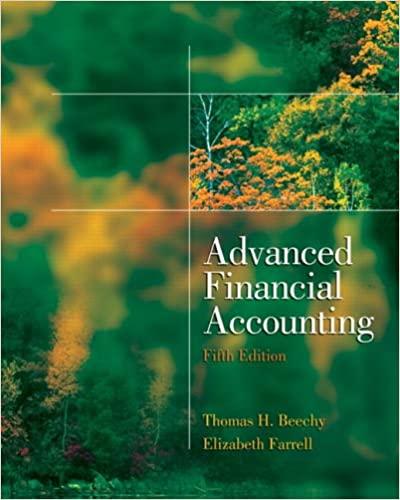The following conversation took place between an accounting policy analyst and an accounting student: Accounting student: Thanks
Question:
The following conversation took place between an accounting policy analyst and an accounting student:
Accounting student: “Thanks for agreeing to meet me for lunch today. I am having some difficulty understanding Section 3855 and the impact of certain types of financial instruments on the accounting for foreign currency transactions.
I am going to school part-time and took Intermediate Accounting a couple of years ago. So what I need from you is a little accounting update.”
Accounting policy analyst: “I am happy to help you out. Why don’t you ask me your questions and then I can write out the answers to your questions for you and e-mail you tomorrow.”
Accounting student: “That would be great. First, I am a little confused about the difference between a financial asset or liability held-to-maturity, an available for-sale financial asset or liability, and a financial asset or liability held for trading.
How do we decide which classification a financial asset or liability belongs in and could you provide me a specific example of each one?”
Accounting policy analyst: “That is a good starting point since that classification will determine the appropriate accounting policy.”
Accounting student: “All of these items are recorded on the balance sheet. Is that statement correct? Does historical cost accounting apply for each item?”
Accounting policy analyst: “Other than the valuation of these items, do you have any other questions?”
Accounting student: “This is the part that I am having real difficulty in understanding.
Since I took my Intermediate Accounting course, I’ve come to understand that there is this new statement called “comprehensive income.” What exactly is this statement?”
Accounting policy analyst: “Comprehensive income is new in Canada but has been in the U.S. for awhile. I will provide you with a couple of examples for when it would be used.”
Accounting student: “My last question relates to gains and losses related to changes in the market value of financial instruments as well as gains and losses related to foreign currency transactions. Is there a difference in how these are accounted for in the different types of financial assets and liabilities based on their classification discussed above?”
Accounting policy analyst: “The quick answer is ‘yes, there is a difference.’ I will explain this in my e-mail. There is also an impact if an item is hedged or not. Iam going to exclude that from this week’s e-mail. Why don’t we plan to have lunch again in two weeks? That way I can answer any additional questions that you have and we can discuss the impact of hedging.”
Required:
Prepare the e-mail to the student.
Step by Step Answer:






